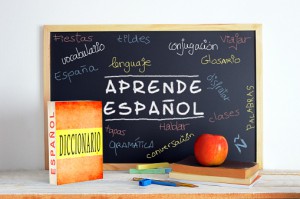 Campaign to encourage correct pronunciation of students’ names seeks support
Campaign to encourage correct pronunciation of students’ names seeks support
My Name, My Identity: A Declaration of Self is an initiative created by the Santa Clara County Office of Education (SCCOE) in San Jose, California, to promote global awareness of the importance of honoring students’ diverse cultures and languages by pronouncing students’ names correctly. Supported by the National Association for Bilingual Education (NABE) and McGraw-Hill Education, the goal is to recognize students’ bilingual/multilingual abilities as assets and honor their names and identities. According to SCCOE, “Names are a reflection of one’s culture, ethnicity, language and gender, and an expression of who we are and how we prefer to be called. Thus, we are proud to launch this joint initiative and invite you to be part of it.”
To learn more about the campaign, visit https://www.mynamemyidentity.org/, where you can Take the Pledge to show your support for building an inclusive and respectful culture in schools and communities.
You can also share your name story at the Campaign’s Facebook page http://bit.ly/mynmyid or Twitter #mynamemyid.



 Last month, Language Magazine published
Last month, Language Magazine published The New York Times has introduced an NYT en Español edition of its news app for Android that features all of the content available on the Spanish-language website for The New York Times en Español.
The New York Times has introduced an NYT en Español edition of its news app for Android that features all of the content available on the Spanish-language website for The New York Times en Español. Taiwan’s president Tsai Ing-wen has issued the first apology in the country’s history to its indigenous people. Tsai took office in May amid expectations from the island’s indigenous peoples, partly due to her background, as her paternal grandmother is of Paiwan descent—the second-largest Aboriginal tribe of Taiwan. She promised to pay more attention to the struggles of Taiwan’s indigenous people and is following up.
Taiwan’s president Tsai Ing-wen has issued the first apology in the country’s history to its indigenous people. Tsai took office in May amid expectations from the island’s indigenous peoples, partly due to her background, as her paternal grandmother is of Paiwan descent—the second-largest Aboriginal tribe of Taiwan. She promised to pay more attention to the struggles of Taiwan’s indigenous people and is following up. International language learners gather each year to compete in a German language competition: th
International language learners gather each year to compete in a German language competition: th
 Programmers for Google have
Programmers for Google have 